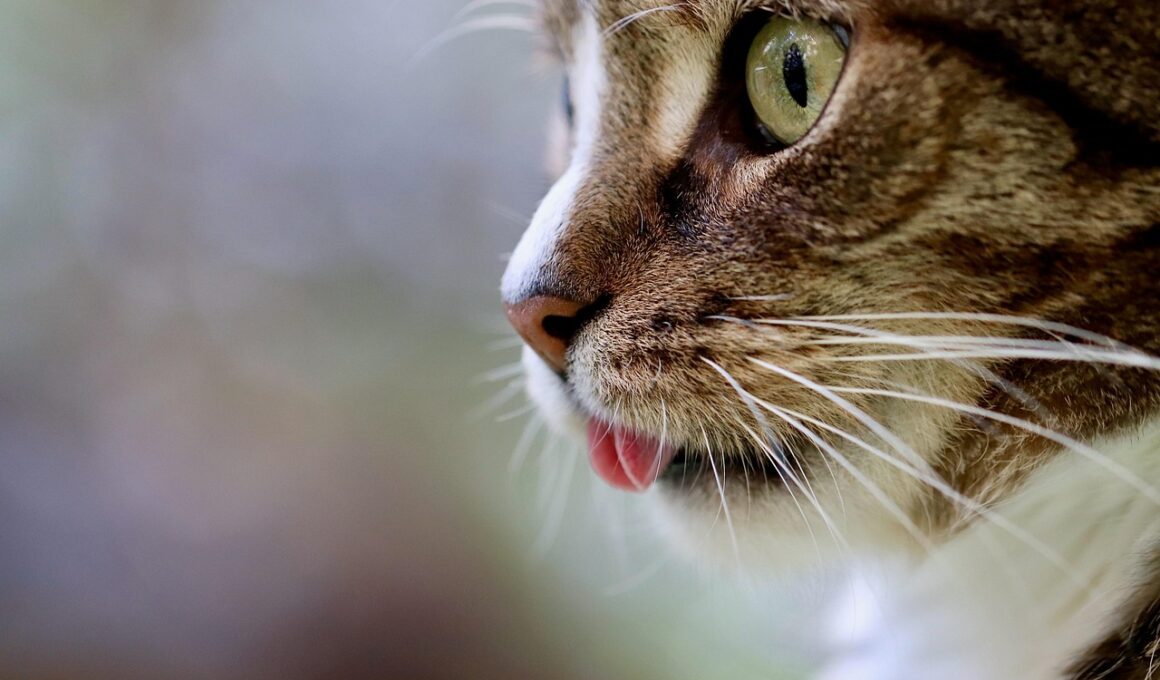Overcoming Vaccination Hesitancy Among Cat Owners
Vaccinations play a crucial role in safeguarding the health of cats. They not only protect against serious diseases but also contribute to the overall well-being of feline populations. However, some cat owners exhibit hesitancy regarding vaccinating their pets. This hesitancy can stem from various sources, including misinformation about vaccine safety, anecdotal experiences, or a lack of understanding of vaccine-preventable diseases. Overcoming these concerns is essential for ensuring that cats are adequately protected. Education is key in addressing these concerns; discussing the importance of vaccinations with cat owners is vital. Tailoring information about vaccination benefits to address common fears can help alleviate concerns. Providing scientific data and expert opinions on vaccine efficacy can also build trust. It is essential to encourage cat owners to engage in conversations with veterinarians, offering a platform for questions and clarifications. Ensuring that cat owners understand the serious implications of vaccine-preventable diseases can motivate them to pursue vaccinations for their cats. By prioritizing education, we can promote informed decisions surrounding feline vaccinations and increase overall cat health in communities.
Many cat owners frequently express concerns regarding the possible side effects of vaccinations. These concerns can lead to a reluctance to have their cats vaccinated, creating a risk for their pets’ health. To help dispel these fears, it’s essential to provide accurate information about the potential side effects of vaccinations. In most instances, the side effects are mild and temporary, similar to the side effects humans experience after receiving vaccinations. This includes symptoms such as mild fever or lethargy, usually resolving within a day or two. In rare cases, there could be severe allergic reactions, but these instances are minimal compared to the benefits offered by vaccinations. Highlighting the significance of herd immunity can encourage cat owners to see vaccinations in a broader context. By vaccinating individual cats, they contribute to the protection of the entire feline community. Addressing these concerns openly and honestly can help to empower cat owners. We should also provide resources for tracking side effects, ensuring transparency. Cat owners must understand that the advantages far outweigh the risks associated with vaccines, leading to better health for their feline friends.
The Role of Veterinarians in Educating Cat Owners
Veterinarians play a crucial role in educating cat owners about vaccinations and their significance for feline health. They are often the most trusted source of information regarding pet care. When veterinarians proactively discuss vaccination schedules and benefits during appointments, they can address any concerns that cat owners might have. Creating a welcoming atmosphere for questions can help alleviate fears. Moreover, veterinarians are responsible for keeping up-to-date with the latest vaccine research and recommendations. This knowledge is vital for providing accurate information. Offering visual aids and literature on vaccination can make understanding easier for pet owners. Additionally, hosting vaccination clinics can provide easy access, reinforcing the importance of immunization without overwhelming owners. Educating owners about the consequences of neglecting vaccinations is essential. Discussing case studies or personal experiences can personalize the information. Encouragement of routine veterinary check-ups helps ensure consistent vaccination schedules. When veterinarians involve cat owners in conversations regarding their pets’ healthcare, it fosters a team approach to health and encourages compliance with vaccination schedules.
Despite advancements in veterinary care, there remains a prevalent myth that indoor cats do not require vaccinations. This belief can lead to dangerous health implications for cats, exposing them to preventable diseases. Educating cat owners about the risks of zoonotic diseases is critical. Even indoor cats are at risk for diseases like feline panleukopenia and calicivirus, which can be transmitted through shoes, clothing, or other animals. Clear communication about the benefits of vaccinations is vital in counteracting these myths. Cat owners may also lack awareness of how the community’s overall feline health is linked to regular vaccinations. Encouraging owners to adopt a proactive approach to their pet’s health by vaccinating cats regularly, regardless of their living conditions, is crucial. Informative campaigns about vaccination benefits can also inspire attendance at regular veterinary appointments. It’s also crucial to provide information on appropriate vaccines for specific lifestyle and risk factors. By emphasizing the role of routine vaccinations in maintaining the health of both individual cats and the community, we can make progress in dispelling this harmful myth.
Community Outreach Initiatives
Community outreach programs can significantly impact raising awareness about the importance of vaccinations for cats. These initiatives can facilitate better pet health practices while fostering a sense of community responsibility among cat owners. Organizing events such as vaccination drives at animal shelters or community centers can help increase participation. Use engaging materials, such as brochures and infographics, to present information attractively and accessibly. Collaborating with local animal welfare organizations can amplify the message. Workshops and seminars can provide venues for expert speakers to educate attendees about vaccinations and general cat care. Moreover, these events can serve as opportunities to answer questions while distributing essential resources. Offering incentives, such as discounts or free vaccination services, can further encourage participation. Providing success stories and testimonials from local residents can also increase engagement. Building relationships within the community around these outreach efforts can promote a culture that prioritizes cat health and wellness. By emphasizing the importance of vaccinations through community outreach, we inspire a change in mindset regarding feline health responsibilities among cat owners.
Social media is an influential tool for promoting information about cat vaccinations and combating hesitancy. By sharing educational articles, videos, and graphics, veterinary professionals and advocacy groups can reach a wider audience. Social platforms allow for real-time communication, providing opportunities for answering questions and addressing concerns promptly. Through social media, community feedback can help refine messaging strategies while identifying prevalent misconceptions around vaccinations. Engaging content, such as success stories of vaccinated cats and informative posts, helps reinforce the importance of vaccination. Creating interactive posts, such as polls or Q&A sessions, encourages cat owners to share their thoughts and experiences regarding vaccinations. In an era where misinformation spreads easily, it is critical to maintain accurate and engaging content online. Encouraging cat owners to pursue vaccinations can create meaningful conversations around pet health in the digital sphere. Social media can help bridge the gap between pet owners and veterinary professionals, fostering proactive discussions. The collective effort to educate through digital platforms can lead to a more informed community regarding the vaccination of cats and promote overall wellness.
Measuring Success in Vaccination Rates
To effectively tackle vaccination hesitancy among cat owners, measuring success in vaccination rates is vital. Tracking data can provide insights into community trends and inform where efforts may need to be intensified. Collaborating with local veterinarians and animal shelters can help gather and analyze relevant data regarding vaccination uptake. By reviewing vaccination rates over time, communities can identify patterns or potential obstacles influencing hesitancy. Publicly sharing this information can also motivate more cat owners to participate in vaccination programs. Conducting surveys or assessments can further illuminate reasons behind hesitance, whether psychological, informational, or logistic. Addressing issues leading to low vaccination rates can guide future strategies effectively. Utilizing feedback from cat owners about their perceptions of vaccinations encourages continuous improvement of educational approaches. Moreover, successful initiatives should be celebrated to promote community involvement. Recognizing milestones, such as increased vaccination rates, can energize community participation. Sharing stories of empowered pet owners who overcame hesitancy can provide motivation. Ultimately, tracking and measuring the success of these initiatives fosters a culture that supports vaccination for healthier feline populations.
Ultimately, overcoming vaccination hesitancy among cat owners is a multifaceted endeavor. It relies on education, communication, and community engagement surrounding the importance of vaccinations. By addressing common concerns, offering clear explanations, and emphasizing the detrimental effects of preventable diseases, the fear surrounding vaccinations can be mitigated. Leveraging the expertise of veterinarians alongside community outreach and digital resources can foster trust and build informed decision-making among cat owners. Understanding the broader implications of vaccination extends beyond individual health to affect the overall wellbeing of the feline community. Targeted efforts aimed at educating and empowering cat owners can substantially increase vaccination rates, promoting healthier outcomes for cats everywhere. Comprehensive outreach and support from veterinary professionals are crucial in this journey, highlighting the importance of a collaborative approach to address concerns. Celebrating successes, even minor ones, contributes to maintaining momentum. As pet owners become more informed, they can play an active role in ensuring their cats receive necessary vaccinations in a timely manner. The goal is to cultivate a healthier future for pets and improve overall community health.


